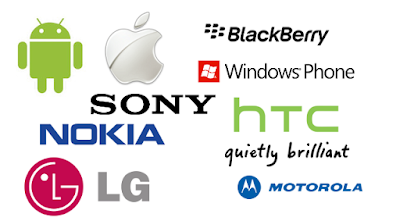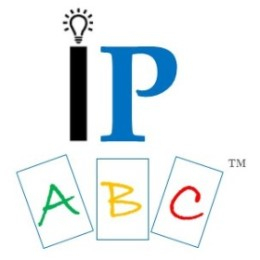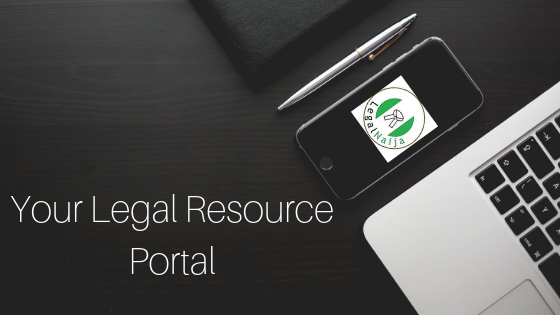
|
|
Question
of the Week
of the Week
Dear
IP ABC
IP ABC
I am Ade Adeyoju, Founder of E-Estates, an internet company in Nigeria which
owns and runs a number of e-commerce startups, including www.buysmartphones.ng. BuySmartphones is an
e-commerce site where anyone can easily buy smartphones online and have them delivered
anywhere in Nigeria. In August 2018 the year we founded BuySmartphones, we
applied to register ‘BuySmartphones’ as a trademark in Nigeria. It wasn’t
accepted. The reason given was that ‘BuySmartphones’ was both descriptive, and
consequently not distinctive enough for trademark registration. But because
‘BuySmartphones’ was already at the heart of our branding and marketing
campaigns, including domain name Buysmartphones.ng, we continued to use it.
‘BuySmartphones’ is also just one of the brands amongst our other similarly
named brands BuyCars, BuyToys, BuyLands, BuyFood, BuyBooks, etc. Why is
‘BuySmartphones’ not registrable as a trademark in Nigeria?

Answer
Dear
Ade Adeyoju
Ade Adeyoju
‘BuySmartphones’
is not registrable as a trademark in Nigeria because it is not distinctive
under Nigeria’s Trademark Act. Under both Parts A and B of the Act,
‘BuySmartphones’ is neither adapted to distinguish nor capable of
distinguishing your online smartphone-retail business from other smartphone
retailers except the trademark has acquired distinctiveness out of use. For an
online retail business that was launched in August 2018, BuySmartphones does
not pass the by-reason-of-the-use-of-trademark test. Your registered domain
name Buysmartphones.ng does not expressly amount to a registered trademark.
is not registrable as a trademark in Nigeria because it is not distinctive
under Nigeria’s Trademark Act. Under both Parts A and B of the Act,
‘BuySmartphones’ is neither adapted to distinguish nor capable of
distinguishing your online smartphone-retail business from other smartphone
retailers except the trademark has acquired distinctiveness out of use. For an
online retail business that was launched in August 2018, BuySmartphones does
not pass the by-reason-of-the-use-of-trademark test. Your registered domain
name Buysmartphones.ng does not expressly amount to a registered trademark.
For
the purpose of trademark registration under Part A of the Trademarks Act,
‘BuySmartphones’ does not meet the conditions for distinctiveness.
the purpose of trademark registration under Part A of the Trademarks Act,
‘BuySmartphones’ does not meet the conditions for distinctiveness.
Distinctiveness
requires that ‘BuySmartphones’ be inherently adapted to distinguish itself as a
mark connected to your e-commerce business or by reason of the use of the
trademark, it is adapted to distinguish.
requires that ‘BuySmartphones’ be inherently adapted to distinguish itself as a
mark connected to your e-commerce business or by reason of the use of the
trademark, it is adapted to distinguish.
The
trademark ‘BuySmartphones’ does not contain any of the essential qualities that
qualify it for trademark registration under Part A of the Trademarks Act. In
order for a trademark to be registrable under Part A of the Act, section 9 of
the Act requires that the mark must contain at least one of the following
essential particulars:
trademark ‘BuySmartphones’ does not contain any of the essential qualities that
qualify it for trademark registration under Part A of the Trademarks Act. In
order for a trademark to be registrable under Part A of the Act, section 9 of
the Act requires that the mark must contain at least one of the following
essential particulars:
- the
name of a company, individual, or firm, represented in a special or
particular manner; - the
signature of the applicant for registration or some predecessor in his
business; - an
invented word or invented words; - a word
or words having no direct reference to the character or quality of the
goods, and not being according to its ordinary signification a
geographical name or a surname; or - any
other distinctive mark.
‘BuySmartphones’
does not pass the tests above. Regarding paragraph (a), you may argue that
‘BuySmartphones’ qualifies for trademark because you have represented it in a
“special or particular manner” by joining two words together, ‘Buy’ and
‘Smartphones’, but this representation may not be considered adequate for the
purpose of distinguishing your goods from those of others. Regarding paragraph
(c) above, though you have formed a word with two different words to form
‘BuySmartphones’, one cannot describe this as being inventive as both words
don’t only already exist in the English dictionary but are also commonly used.
‘BuySmartphones’ completely fails the test under paragraph (c). This is because
‘BuySmartphones’ are words that directly reference the character or quality of
the goods.
does not pass the tests above. Regarding paragraph (a), you may argue that
‘BuySmartphones’ qualifies for trademark because you have represented it in a
“special or particular manner” by joining two words together, ‘Buy’ and
‘Smartphones’, but this representation may not be considered adequate for the
purpose of distinguishing your goods from those of others. Regarding paragraph
(c) above, though you have formed a word with two different words to form
‘BuySmartphones’, one cannot describe this as being inventive as both words
don’t only already exist in the English dictionary but are also commonly used.
‘BuySmartphones’ completely fails the test under paragraph (c). This is because
‘BuySmartphones’ are words that directly reference the character or quality of
the goods.
Therefore,
‘BuySmartphones’ is not registrable under Part A of the
Act. ‘BuySmartphones’ has not been adapted or modified enough to merit
distinctiveness.
‘BuySmartphones’ is not registrable under Part A of the
Act. ‘BuySmartphones’ has not been adapted or modified enough to merit
distinctiveness.
Similarly, for the purpose of trademark registration under Part B of the
Trademarks Act, ‘BuySmartphones’ does not also meet the conditions for
distinctiveness.
Registration
under Part B requires that in relation to the goods or services in respect of
which a trademark is registered or proposed to be registered, the trademark
must be capable of distinguishing goods with which the proprietor or the
trademark is or may be connected in the course of trade from goods or services
in the case of which no such connection subsists. Section 10(1) of the Act.
under Part B requires that in relation to the goods or services in respect of
which a trademark is registered or proposed to be registered, the trademark
must be capable of distinguishing goods with which the proprietor or the
trademark is or may be connected in the course of trade from goods or services
in the case of which no such connection subsists. Section 10(1) of the Act.
Under
section 10(2), what determines distinctiveness is not the adaptability of the
trademark to distinguish goods or services (as required under Part A), but
capability of distinctiveness. There is a difference between adaptability and
capability. According to the Oxford Dictionary, adapt means “to change
something in order to make it suitable for a new use or situation”, while
capable means “[h]aving the ability, fitness, or quality necessary to do or
achieve a specified thing.”
section 10(2), what determines distinctiveness is not the adaptability of the
trademark to distinguish goods or services (as required under Part A), but
capability of distinctiveness. There is a difference between adaptability and
capability. According to the Oxford Dictionary, adapt means “to change
something in order to make it suitable for a new use or situation”, while
capable means “[h]aving the ability, fitness, or quality necessary to do or
achieve a specified thing.”
Therefore,
while achieving distinctiveness under Part A of the Act relies on the extent to
which an applicant has adapted, changed, or modified the words or elements in
the trademark in order to make it distinctive or suitable for distinguishing
goods or services connected to the applicant, achieving distinctiveness under
Part B of the Act does not rely on the extent to which an applicant has
adapted, changed, or modified the words or elements of the trademark but the
ability or quality of the trademark itself to be inherently distinctive or
distinguish goods or services connected to the applicant.
while achieving distinctiveness under Part A of the Act relies on the extent to
which an applicant has adapted, changed, or modified the words or elements in
the trademark in order to make it distinctive or suitable for distinguishing
goods or services connected to the applicant, achieving distinctiveness under
Part B of the Act does not rely on the extent to which an applicant has
adapted, changed, or modified the words or elements of the trademark but the
ability or quality of the trademark itself to be inherently distinctive or
distinguish goods or services connected to the applicant.
Consequently,
‘BuySmartphones’ is not registrable under Part B of the Act. ‘BuySmartphones’
does not have the ability or quality of inherent distinctiveness.
‘BuySmartphones’ is not registrable under Part B of the Act. ‘BuySmartphones’
does not have the ability or quality of inherent distinctiveness.
But how about distinctiveness by reason of use of the trademark?
Good
question. Indeed under the Trademarks Act, a trademark may be determined to be
distinctive if by reason of use of the trademark it is in fact adapted to
distinguish {section 9(3)(b)} or capable of distinguishing {section 10(2)(b)}.
Once a Tribunal determines that it is, the trademark is accepted for
registration under the appropriate part.
question. Indeed under the Trademarks Act, a trademark may be determined to be
distinctive if by reason of use of the trademark it is in fact adapted to
distinguish {section 9(3)(b)} or capable of distinguishing {section 10(2)(b)}.
Once a Tribunal determines that it is, the trademark is accepted for
registration under the appropriate part.
In
your case, BuySmartphones is a new e-commerce business which retails smartphones.
It was just founded in August 2018. These past months, you have been using the
unregistered trademark ‘BuySmartphones’ in your branding and other marketing
campaigns. You also have it registered as your domain name. While these
activities qualify as “use of the trademark”, has this use adapted it or made
it become capable of distinctiveness? To determine this, a Tribunal will be
considering whether your use of ‘BuySmartphones’ is to the extent that it is
adequate for the purpose of distinctiveness. The period of time, degree of use,
and even the goodwill you may have regarding the use of ‘BuySmartphones’ in
connection to your e-commerce business of selling smartphones will all be
critical.
your case, BuySmartphones is a new e-commerce business which retails smartphones.
It was just founded in August 2018. These past months, you have been using the
unregistered trademark ‘BuySmartphones’ in your branding and other marketing
campaigns. You also have it registered as your domain name. While these
activities qualify as “use of the trademark”, has this use adapted it or made
it become capable of distinctiveness? To determine this, a Tribunal will be
considering whether your use of ‘BuySmartphones’ is to the extent that it is
adequate for the purpose of distinctiveness. The period of time, degree of use,
and even the goodwill you may have regarding the use of ‘BuySmartphones’ in
connection to your e-commerce business of selling smartphones will all be
critical.

Descriptive marks may be good for domain names in a search engine-driven
digital world and also good for businesses with low-advertising budgets,
but they are not good for trademarks and may result in bad investments.
Descriptive
marks only describe the goods or services to which they are applied. Generally,
descriptive marks cannot be registered as trademark. Descriptive marks may only
be registered if they have achieved secondary meaning.
marks only describe the goods or services to which they are applied. Generally,
descriptive marks cannot be registered as trademark. Descriptive marks may only
be registered if they have achieved secondary meaning.
‘BuySmartphones’
is a descriptive mark. Has it achieved secondary meaning? The answer is most
likely NO. Achieving secondary meaning for any descriptive mark takes a lot of
time. It also needs some level of goodwill. Consequently, it is not
registrable.
is a descriptive mark. Has it achieved secondary meaning? The answer is most
likely NO. Achieving secondary meaning for any descriptive mark takes a lot of
time. It also needs some level of goodwill. Consequently, it is not
registrable.
If
after investing so much in branding and marketing you are unable to secure
‘BuySmartphones’ as your trademark, your e-commerce business is not protected.
Any person can use the same or similar mark to deceive potential customers and
you will have no remedy in law. This will not be good for business.
Absolutely not.
after investing so much in branding and marketing you are unable to secure
‘BuySmartphones’ as your trademark, your e-commerce business is not protected.
Any person can use the same or similar mark to deceive potential customers and
you will have no remedy in law. This will not be good for business.
Absolutely not.
Distinctiveness is the life of any trademark. Without distinctiveness, a
trademark is dead.
When
launching a new business entering a market, choosing a distinctive mark that
distinguishes your goods and services in connection with your brand is not an
easy task.
launching a new business entering a market, choosing a distinctive mark that
distinguishes your goods and services in connection with your brand is not an
easy task.
Your trademark is your business. Be creative, deliberate, and strategic. On one
hand, don’t assume that you need to be descriptive in your choice of trademark
before your target customers can know your business exists. On the other hand,
a nondescriptive trademark may also not be easily recognizable by your target
customers. Everything depends on various factors, including economic, social,
legal, and even psychological factors.
Always consult your IP lawyer or law firm when deciding on the best name for
your brand products and services.
Best
wishes
wishes
Follow-up questions, if any, are welcomed.
